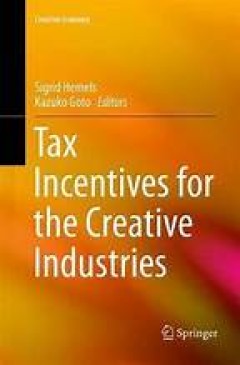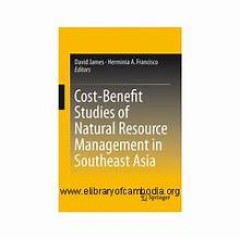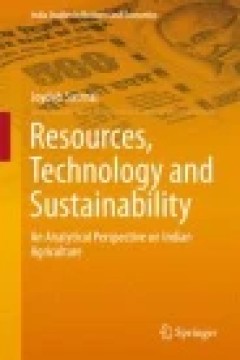Filter by

Socio-Technical Innovation Bundles for Agri-Food Systems Transformation
This open access book is the result of an expert panel convened by the Cornell Atkinson Center for Sustainability and Nature Sustainability. The panel tackled the seventeen UN Sustainable Development Goals (SDGs) for 2030 head-on, with respect to the global systems that produce and distribute food. The panel’s rigorous synthesis and analysis of existing research leads compellingly to multiple…
- Edition
- 1
- ISBN/ISSN
- -
- Collation
- -
- Series Title
- Sustainable Development Goals Series
- Call Number
- XXXIX, 195

Indian Agriculture Towards 2030
This open access book brings together varying perspectives for transformational change needed in India’s agriculture and allied sectors. Stressing the need of thinking for a post-Green Revolution future, the book promotes approaching this change through eight broad areas, indicating the policy shifts needed to meet the challenges for the coming decade (2021-2030). The book comprises of ten…
- Edition
- 1
- ISBN/ISSN
- -
- Collation
- -
- Series Title
- India Studies in Business and Economics
- Call Number
- XV, 311

Agricultural Development in Asia and Africa
This Open Access book explores the multifaceted nature of agricultural and rural development in Asia and examines the extent to which the Asian experience is being replicated in contemporary Africa. This volume compiles the works of top scholars who provided analyses and evidences from household-level surveys collected for many years in several parts of Asia and Africa. The most important findi…
- Edition
- 1
- ISBN/ISSN
- 978-981-19-5542-6
- Collation
- -
- Series Title
- Emerging-Economy State and International Policy Studies
- Call Number
- -

The Sustainable Provision of Environmental Services from Regulation to Inno…
This book addresses the ability of market-based instruments to improve the sustainable provision of environmental services. The author combines field research and insights from the multi-stakeholder dialogue at the FAO to analyze the gap between the predictions provided by theory and the corresponding outcomes in practice. In particular, the author challenges the theory behind Payments for Envi…
- Edition
- -
- ISBN/ISSN
- 978-3-319-19345-8
- Collation
- -
- Series Title
- -
- Call Number
- -

Tax Incentives for the Creative Industries
This book combines insights from cultural economics, public finance, and tax law, providing an accessible and comprehensive introduction in the application of tax incentives for the creative industries. It does not have a single-country focus, but instead uses the perspective and examples of various countries around the world. The book starts with a theoretical part, introducing the concepts of…
- Edition
- 1
- ISBN/ISSN
- 978-981-287-832-8
- Collation
- Business Management
- Series Title
- -
- Call Number
- 650

Cost-Benefit Studies of Natural Resource Management in Southeast Asia
This book applies cost-benefit analysis techniques in the management of environment and natural resources in developing countries of the Southeast Asian region and presents a compendium of studies conducted by researchers supported by the Economy and Environment Program for Southeast Asia (EEPSEA). It emphasizes the close relationship between the environment and natural resources and economic d…
- Edition
- 1
- ISBN/ISSN
- 978-981-287-393-4
- Collation
- Ekonomi
- Series Title
- -
- Call Number
- 330

Arts, Sciences, and Economics: A Historical Safari
This book deals with the economic aspects of changing attitudes in arts and sciences. The effects of the public good character of culture, along with the very long production period and lifetime for its products, are emphasized, since both contribute to the failure of normal market solutions. Embodiment of ideas and the consequences of modern reproduction technology for protection of property r…
- Edition
- Ed. 1
- ISBN/ISSN
- 978-3-662-44130-5
- Collation
- XXIV, 189
- Series Title
- -
- Call Number
- 330 PUU a

Art Wealth Management: Managing Private Art Collections
This book offers an overview of how to manage private art collections, providing essential insights on art wealth management, art investment, art governance, and succession planning for art assets. It offers practical recommendations on sound art collection governance, but also examines the background of art markets and price building, including the influence of fashion and trends. Throughout h…
- Edition
- Ed. 1
- ISBN/ISSN
- 978-3-319-24241-5
- Collation
- XIII, 162
- Series Title
- Management for Professionals
- Call Number
- 658.15 ART a

Resources, Technology and Sustainability
This book uses sound theoretical frameworks and econometric techniques to rigorously analyze and explain the conditions of sustainable growth in agriculture. It further investigates how management of natural resources and technological advances can enhance productivity and ensure sustainable growth in agriculture. Optimal control theory, dynamic optimization problems and theory of risk and unce…
- Edition
- Ed. 1
- ISBN/ISSN
- 978-981-10-0895-5
- Collation
- -
- Series Title
- -
- Call Number
- -

In Pursuit of an African Green Revolution: Views from Rice and Maize Farmers'…
This book explores recent experiences in the effort to bring about a Green Revolution in Sub-Saharan Africa (SSA). The chapters focus on rice and maize, which are promising and strategic smallholder crops. Significantly, we find that an African Rice Revolution has already begun in many irrigated areas, using Asian-type modern varieties, chemical fertilizer, and improved management practices. Fu…
- Edition
- 1
- ISBN/ISSN
- 978-4-431-55692-3
- Collation
- XXIII, 208
- Series Title
- Natural Resource Management and Policy
- Call Number
- 330 INP
 Computer Science, Information & General Works
Computer Science, Information & General Works  Philosophy & Psychology
Philosophy & Psychology  Religion
Religion  Social Sciences
Social Sciences  Language
Language  Pure Science
Pure Science  Applied Sciences
Applied Sciences  Art & Recreation
Art & Recreation  Literature
Literature  History & Geography
History & Geography